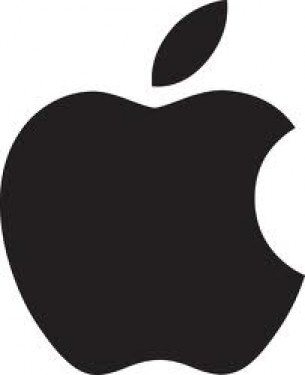You’d think that we would have heard everything about the ongoing legal dispute between Apple Inc. (NASDAQ:AAPL) and Samsung Electronics Co., Ltd. (KRX:005930) by now. Unfortunately, you’d be wrong. With more twists than an M. Night Shyamalan ending, the patent battle has taken yet another unexpected turn. But with so much focus on these companies, is it possible that you’re missing out on other investment options in the smartphone space?
Apple vs. Samsung, round 42
The US International Trade Commission recently ruled that Apple Inc. (NASDAQ:AAPL) had infringed on one of Samsung Electronics Co., Ltd. (KRX:005930)’s patents in certain iPhone and iPad models. Issuing orders affecting certain models of the iPhone 3GS, the iPhone 4, the iPad 3G and the iPad 2 3G that are sold by AT&T Inc. (NYSE:T), the court handed Apple Inc. (NASDAQ:AAPL) its turn at having its products banned in the United States.
Twists and turns in the legal disputes between Apple and Samsung Electronics Co., Ltd. (KRX:005930) are nothing new. The two companies have been in and out of court since 2011, with 50 cases active around the world less than a year later. Apple Inc. (NASDAQ:AAPL) won a major ruling against Samsung Electronics Co., Ltd. (KRX:005930) in the US, while Samsung won rulings in the UK, Japan and South Korea.
The potential ban against Apple’s products isn’t the first time in this ongoing dispute that legal restrictions have been put in place, either. At one point, an injunction stopped Samsung Electronics Co., Ltd. (KRX:005930) from selling some of its products in the US until the trial ended.
When it comes down to it, the bans and injunctions are as important as, if not moreso than, any damages that are awarded. When either company is prevented from importing or selling its products, the other has a temporary window of opportunity. The bans and injunctions typically don’t affect either company’s most recent product offerings, but they do limit sales of slightly older hardware whose discounted prices consumers may find appealing.
While Apple Inc. (NASDAQ:AAPL) and Samsung hold the spotlight, Google Inc (NASDAQ:GOOG) may be trying to sneak in to the battle unnoticed. Google’s open-source Android operating system is the most popular mobile OS in the world. Even Samsung Electronics Co., Ltd. (KRX:005930) runs Android on most of its devices. Despite the approximately 75% market share that Android enjoys, however, Google Inc (NASDAQ:GOOG) has had a difficult time monetizing its mobile OS.
To get around this, Google Inc (NASDAQ:GOOG) is ready to ramp up its hardware presence in the smartphone world. Having purchased Motorola Solutions Inc (NYSE:MSI) in 2012 for $12.5 billion to defend itself against patent lawsuits, the search giant is ready to take advantage of that acquisition.
The Motorola Solutions Inc (NYSE:MSI) “Moto X” smartphone, expected for release in October, features Google Inc (NASDAQ:GOOG) integration and “contextual awareness” that allows it to determine where it is and how it’s being used. This data supposedly helps to improve the user experience, and may ultimately aid Android app developers in better meeting the needs of their users. Add in a lower price point and the potential for a major marketing push from Google Inc (NASDAQ:GOOG), and the Moto X could be just what’s needed to close the gap and make Motorola Solutions Inc (NYSE:MSI) profitable again.
The search for (pre)paying customers
One segment of the smartphone market that often gets overlooked is the prepaid market. Prepaid plans were once expensive, feature-restricted, and only supported older phone models. This is rapidly changing, however, with several companies offering prepaid cellular data plans for smartphones that support newer phones, including a number of Android devices and even iPhone varieties. Taking advantage of the growing popularity of prepaid service, T MOBILE US INC (NYSE:TMUS) converted its business model to feature prepaid month-to-month cellular and data service.
Though T MOBILE US INC (NYSE:TMUS) is far from the leader in cellular service, it’s still a well-known company that has remained competitive against larger companies such as AT&T Inc. (NYSE:T) and Verizon Communications Inc. (NYSE:VZ). Converting its business model is a risky maneuver, but it may be a very smart one as well. T MOBILE US INC (NYSE:TMUS)’s larger peers are sadly lacking when it comes to affordable, feature-rich prepaid options.
Coming out on top
If you’re an investor looking to take advantage of the growing smartphone market, you have a number of options available to you. Unfortunately, many of your options are expensive, and have other factors that can have a major impact on profitability.
Both Apple Inc. (NASDAQ:AAPL) and Google Inc (NASDAQ:GOOG) can be a good buy, though you should be careful when buying into a high-priced popular stock. Much of its value may be accounted for by the time its price reaches into the hundreds of dollars. Apple could see additional growth if it gets back into the business of innovation, though tweaks to existing products will take it only so far. Reviving Motorola Solutions Inc (NYSE:MSI) with the Moto X could carry Google higher, but that’s only if the phone becomes popular.
Investing in carriers such as T MOBILE US INC (NYSE:TMUS) that are trying to innovate with their services may be a better option. Currently, contracts that include data plans are typically more expensive than prepaid service even with the cost of phone subsidies. With T MOBILE US INC (NYSE:TMUS)’s conversion, you can expect a push in upcoming years to convert more consumers to prepaid. The companies that offer the best prepaid services will benefit greatly, and T MOBILE US INC (NYSE:TMUS) currently has one of the best prepaid packages available from the major carriers.
John Casteele owns shares of Apple. The Motley Fool recommends Apple and Google. The Motley Fool owns shares of Apple and Google. John is a member of The Motley Fool Blog Network — entries represent the personal opinion of the blogger and are not formally edited.
The article How You Can Prevail in the Smartphone Wars originally appeared on Fool.com is written by John Casteele.
Copyright © 1995 – 2013 The Motley Fool, LLC. All rights reserved. The Motley Fool has a disclosure policy.





